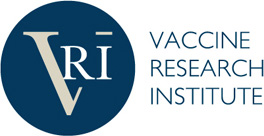Resistance mutations to nirsevimab are rare in respiratory syncytial virus (RSV)
 Nirsevimab is an antibody targeting the respiratory syncytial virus (RSV). Available in France since September 2023, it is indicated in neonates and infants for the prevention of bronchiolitis caused by RSV. However, its widespread use raises the question of the emergence of resistance mutations.
Nirsevimab is an antibody targeting the respiratory syncytial virus (RSV). Available in France since September 2023, it is indicated in neonates and infants for the prevention of bronchiolitis caused by RSV. However, its widespread use raises the question of the emergence of resistance mutations.
The POLYRES study, the largest prospective surveillance study of nirsevimab breakthrough infections to date, has just delivered its conclusions.
This work, coordinated by Prof. Slim FOURATI, IMRB-U955, PAWLOTSKY team, and Prof. Marie-Anne RAMEIX-WELTI, M3P unit, Institut Pasteur , was funded by the ANRS MIE with the support from the French Ministry of Higher Education and Research as part of the EMERGEN Consortium.[2] Scientists from AP-HP (including Henri Mondor University Hospitals), Inserm, Institut Pasteur and the Universities of Paris-Est-Créteil and Versailles-Saint-Quentin-en-Yvelines, members of the ANRS MIE virology network teams, have shown that nirsevimab resistance mutations in RSV are very rare.
The results of this study have just been published in the Lancet Infectious Diseases on October 15, 2024.

